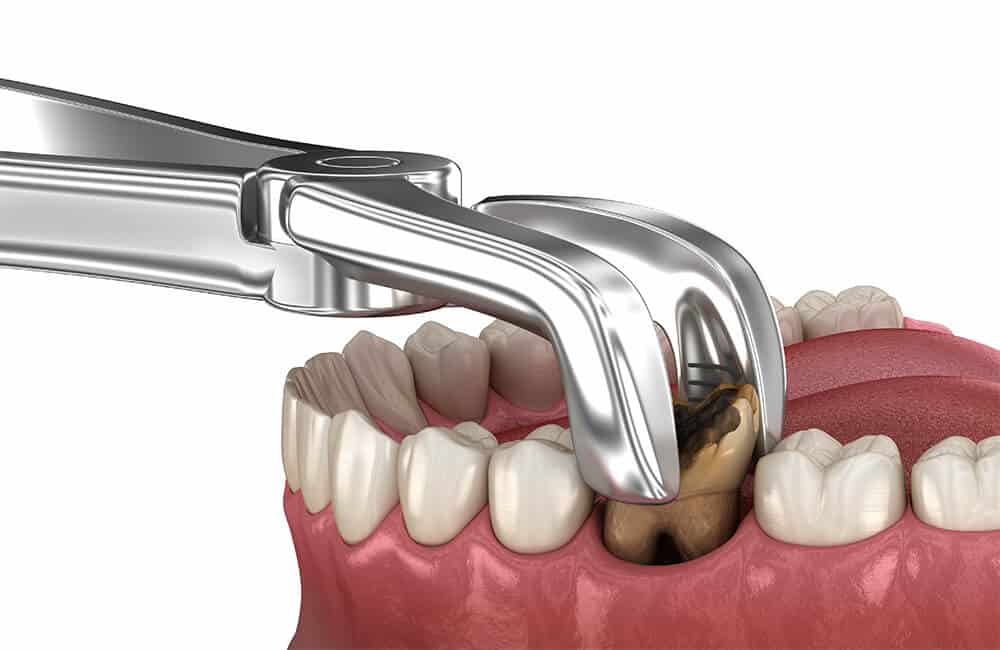Tooth Extraction
We provide expert Tooth Extraction services to address various dental issues that may require the removal of a tooth. Tooth extraction is a common dental procedure performed to alleviate pain, prevent infection, or make space for other dental treatments. Our goal is to ensure that the procedure is as comfortable and efficient as possible.
What is Tooth Extraction?
Tooth extraction is the process of removing a tooth from its socket in the jawbone. This procedure may be necessary for several reasons, including severe decay, infection, crowding, or damage beyond repair.

Why Choose Tricity Healthcare Centre,
- Expertise: The clinic is staffed with experienced dental professionals who are experts in implantology, ensuring that each procedure is performed with precision and care.
- Advanced Technology: Tricity Healthcare Centre utilizes the latest in dental technology and techniques, ensuring that patients receive the best possible care.
- Personalized Care: Each treatment plan is tailored to the individual needs of the patient, taking into account their oral health, aesthetic preferences, and overall well-being.
- Comprehensive Aftercare: The clinic provides thorough aftercare instructions and follow-up appointments to ensure the longevity and success of the implant.
Types of tooth extractions:
- Simple Extraction: Performed on a tooth that is visible above the gumline. This type of extraction is typically done with local anesthesia and involves loosening the tooth with specialized instruments before removing it.
- Surgical Extraction: Required for a tooth that is not easily accessible or has not fully erupted, such as impacted wisdom teeth. This procedure may involve making an incision in the gum tissue to access the tooth and may require stitches afterward.
Why Choose Us?
Tooth extraction is generally not painful due to the use of local anesthesia. You may experience some discomfort or pressure during the procedure, but it should not be painful. Afterward, some pain or swelling may occur, which can be managed with prescribed or over-the-counter pain relievers.
Recovery time varies depending on the complexity of the extraction and individual healing rates. Generally, initial healing takes about one to two weeks, while complete healing of the bone and gum tissue may take several weeks to a few months.
Follow post-extraction care instructions, including keeping the extraction site clean, avoiding hard or hot foods, and not smoking. Use any prescribed medications as directed, and attend follow-up appointments to monitor healing.
Risks are minimal but may include infection, bleeding, dry socket (when the blood clot in the socket dislodges), or damage to adjacent teeth. Following your dentist’s instructions and attending follow-up visits can help minimize these risks.
After the initial recovery period, you can resume normal eating. However, for the first few days, stick to soft foods and avoid chewing directly on the extraction site. Follow your dentist’s advice on dietary restrictions and modifications.
Depending on the location and purpose of the extraction, you may need a replacement tooth to restore function and aesthetics. Options include dental implants, bridges, or dentures. Your dentist will discuss the best option for your specific needs.



